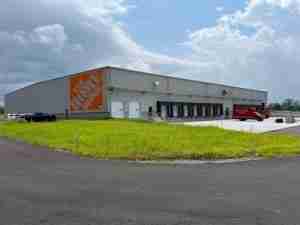Heavy investment at the height of the pandemic has created excess capacity across freight markets and modes of transport, both in the US and globally, according to Paul Bingham, Director of Supply Chain Transportation Consulting, S&P Global Market Intelligence.
Now demand is softening, this is exposing the financial vulnerability of the weakest operators and will prompt rising levels of bankruptcies, mergers and acquisitions, he told the latest episode of The Freight Buyers’ Club podcast, produced with the support of Dimerco Express Group.
Bingham said that as during previous freight market upcycles, operators had rushed to invest in new capacity to meet soaring demand, but much of this capacity had arrived just as demand softened.
“When periods of peak demand occur, the industry adds capacity; it adds capacity and workforce and equipment and facilities,” he said [See video here and below.]
“But all that takes time…and that capacity comes on with a lag, and it comes on in the face of softening demand.”
The consequence has been a steep decline in freight rates across modes and trade lanes. “In some cases, we're down double digits in rates,” he added, with Far East Asia to North America trans-Pacific container trade the most extreme example, with rates now down by “80-90%” from pandemic peaks.
“That has financial repercussions for the carriers that went through this whipsaw [effect from] record high rates across modes of transport,” he said. “It was true in air cargo. It was true in trucking. It was true in rail. It was true in ocean shipping.”
On top of declining demand and rates, and excess market capacity, logistics businesses are also facing rising costs for inputs including labor and fuel as inflation levels have spiralled. This has left many companies in precarious financial positions.
“Consequently, some of the companies that were weaker financially are not making it,” said Bingham. “They're not going to survive.
“And there will be consolidation. We've seen merger acquisition activity. Some of the stronger have bought the weaker. And we'll even see probably some continued failures as some of the companies at the margin don't make it, especially smaller companies.
“That's true from container shipping on the trans-Pacific to trucking domestically in the United States.”
In the latest episode of The Freight Buyers’ Club podcast, produced with the support of Dimerco Express Group and available on all platforms, Bingham also shares his view that 2023 will be a “trough” for global growth and trade. However, recovery will start in 2024, even as some key economies teeter on recession
Bingham and Alberto Villareal, Founder & MD, Nepanoa, also share their thoughts on China+1 options, and whether manufacturers and retailers are looking to de-risk supply chains or decouple from China altogether.










